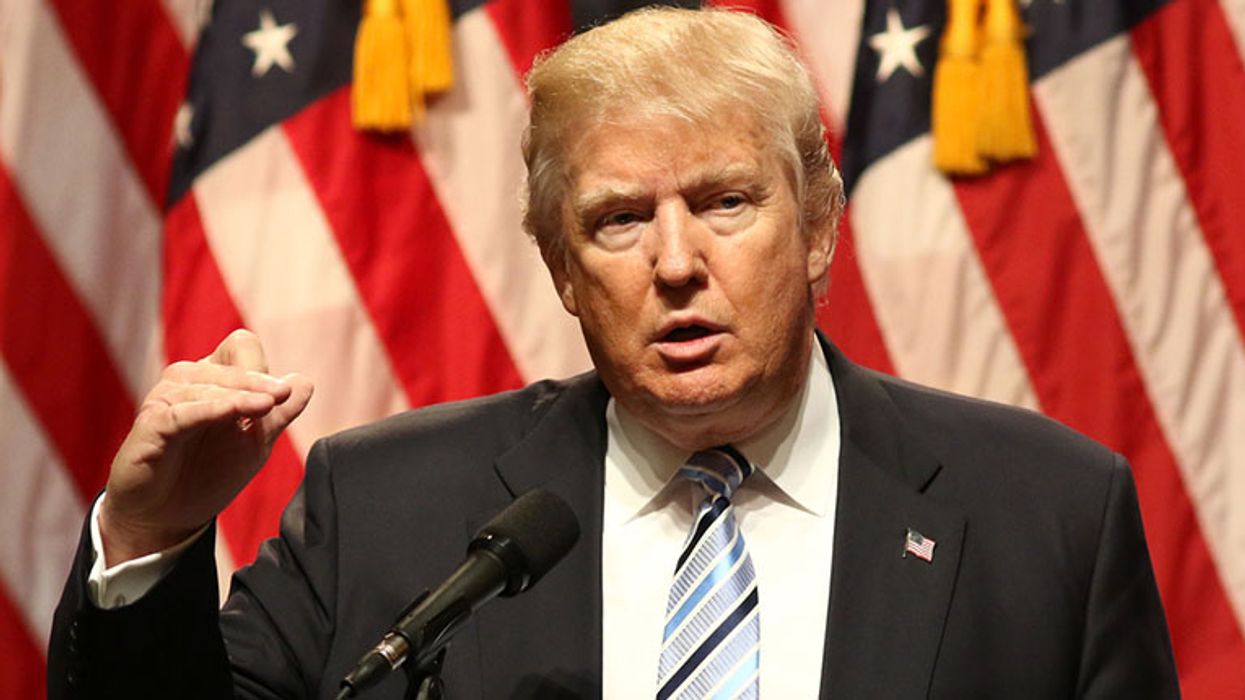Here’s everything you need to know about how the Constitution’s insurrection clause affects Trump


The question of whether former President Donald Trump is qualified for the 2024 Republican primary ballot is only now starting to be decided with just weeks to go before voters cast their ballots in the first nominating contests. The arguments both for and against are still being heard in courts throughout the country, which has led to lingering questions for voters.
Politico legal correspondent Kyle Cheney and state politics reporter Zach Montellaro co-authored a detailed report breaking down voters' most pertinent questions relating to Section 3 of the 14th Amendment to the US Constitution — more commonly referred to as the "insurrection clause" — and how it impacts the former president's third bid for the White House. The authors began by dispelling the notion that voters Colorado and Maine will not have the option to vote for Trump next year.
"Though the rulings were both momentous, there’s a decent chance neither of them will have any impact on the actual presidential race," Cheney and Montellaro wrote. "The judges in Colorado and the Maine secretary of state both agreed to pause the effect of their ruling while other courts consider the matter. This means it’s likely Trump will ultimately appear on the presidential primary ballot in both states — and that if the Supreme Court intervenes and overturns these decisions, he’ll appear on the general election ballot as well."
POLL: Should Trump be allowed to hold office again?
The crux of the insurrection clause states that no one can serve as an "officer" of the federal government — whether "civilian or military" — who has "engaged in insurrection or rebellion" against the United States, or who has given "aid or comfort to the enemies thereof." The 14th Amendment was added to the US Constitution after the Civil War, when the states that seceded from the union and waged war against the country were admitted back into the fold.
The amendment's authors sought to prevent insurrectionists from having influence over federal agencies, knowing that southern states were likely to elect insurrectionists to office unless prevented from doing so. However, Trump's 2024 candidacy is the first time the insurrection clause has been used to block a presidential candidate's attempt to appear on a ballot. Even prior to today, its use was extremely rare.
"There’s really just one modern example of it being used. In New Mexico, a local county commissioner — Couy Griffin — was removed from office in 2022 by a state court after he was found guilty on a trespassing charge for taking part in the Jan. 6 attack on the U.S. Capitol," Cheney and Montellaro wrote.
Another question Politico answered was whether Trump needed to be found guilty of insurrection in a courtroom in order to be disqualified on 14th Amendment grounds. In a post to his blog Pints of History, historian David W. Tollen wrote that the argument that the former president can't be disqualified without a guilty verdict is actually not a requirement laid out in the Constitution. Cheney and Montellaro wrote that there were "diverging legal views" on that question, and that "the Supreme Court’s imprimatur may be necessary."
READ MORE: Historian debunks 'five key errors' about Trump's disqualification from CO ballot
"Maine’s secretary of state acknowledged it would’ve been easier to reach her conclusion had Trump been found guilty or not guilty of the crime. However, she said her responsibility was to look at the evidence for herself and did not depend on the existence of a criminal trial or verdict," they wrote. "Officials in other states may reach a different conclusion."
Click here to read Politico's full report.